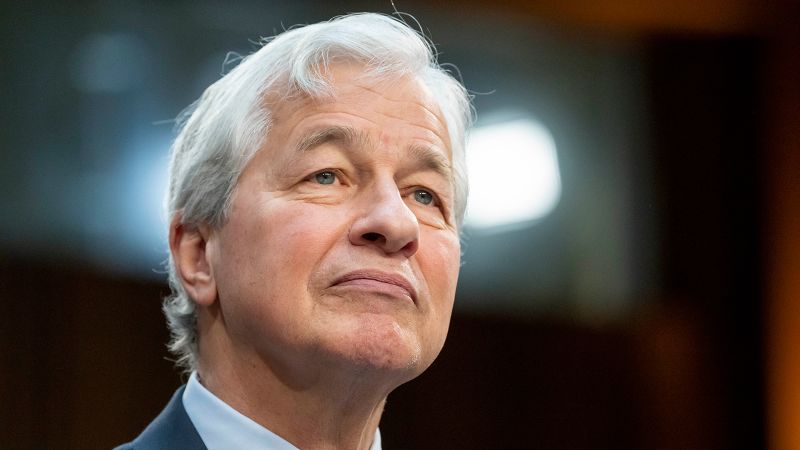Alex Brandon/Associated Press
JPMorgan CEO Jamie Dimon pictured at a hearing of the U.S. Senate Banking, Housing, and Urban Affairs Committee investigating Wall Street companies in December 2023 in Washington, DC.
London
CNN
—
The chorus of voices warning of the dangers of record US government debt is growing louder.
Over the past 24 hours, JPMorgan (JPM) CEO Jamie Dimon and the world's largest hedge fund founder Ray Dalio weighed in on concerns about the US debt mountain.
Dimon said in an interview with Sky News on Wednesday that he wants the U.S. government to focus on reducing the budget deficit – the difference between what it spends each year and what it receives in taxes – before financial markets force it. Ta.
“The sooner we focus on that, the better,” Dimon added. “At some point, that's going to create a problem…The problem is caused by the market, and then you're forced to deal with it, and you end up dealing with it in a way that's probably much more unpleasant than if you had dealt with it in the first place. Become.”
The yawning deficit further increases the overall level of U.S. government debt, as the Treasury has to issue more bonds to fill the gap.
Dalio said he was concerned about the decline in investors. Demand for government bonds, also known as government bonds. “We are concerned about a slowdown in demand to meet supply, particularly from overseas buyers concerned about the US debt situation and potential sanctions (on countries other than Russia),” he told the Financial Times. said.
As investors become more cautious, they may demand higher returns, or yields, on their holdings of U.S. Treasuries, a risk that the International Monetary Fund (IMF) and Congressional Budget Office (CBO) have already flagged. This could result in higher borrowing costs for the United States overall. US economy.
Victor J. Blue/Bloomberg/Getty Images
Billionaire Ray Dalio Bridgewater Associates founder during an interview on Bloomberg TV in New York In April 2024.
Mr. Dimon and Mr. Dalio's comments reflect broader concerns about the broader risks of the massive U.S. government debt burden, which the Treasury Department puts at $34.6 trillion, larger than the size of the U.S. economy.
Dimon acknowledged that debt-powered government spending, including pandemic stimulus, is one of the reasons behind the world's largest economy's strong growth.
“America spent a lot of money during and after the coronavirus. The current deficit is 6%, which is a lot, but clearly it's driving growth,” he said.
Consumer prices also rose due to wasteful spending.
“Any country can borrow money to stimulate some growth, but that doesn't always lead to good growth. So the U.S. has to focus a little more on the issue of budget deficits. “I think we need to fully recognize that it's important to the nation and the world,” Dimon said.
The IMF said last month that high and rising U.S. government debt is raising borrowing costs around the world and risks undermining global financial stability.
The warning followed an even more blunt message from the US CBO chief. Parliament's independent financial watchdog said the US was at risk of a bond market crisis similar to the one that engulfed Britain under former prime minister Liz Truss.
Investors effectively rejected the British government's plan to finance the extra spending and tax cuts by borrowing more money, leading to a fall in British government bonds.
The IMF says there is already some evidence that investors are demanding higher returns from holding U.S. Treasuries, in part due to concerns about the debt trajectory.
The federal government has so far spent $855 billion more than it collected in the 2024 fiscal year, which began Oct. 1, according to the Treasury Department.
With the rise in official interest rates, debt repayment costs are also rising, reducing the amount of funds available for public services. In fiscal year 2023, the U.S. government spent more on debt service than it did on housing, transportation, and higher education, according to the nonprofit Committee for a Responsible Federal Budget.
The United States is not alone in increasingly living beyond its means. The European Central Bank expects government debt in the 20 countries that use the euro to remain higher than before the pandemic.
This makes European governments “more vulnerable to adverse shocks” such as rising geopolitical tensions if they are forced to increase defense spending, the report said on Thursday.
Olesya Dmitracova contributed to this article and updated it with additional information.


